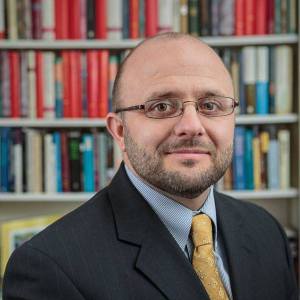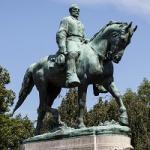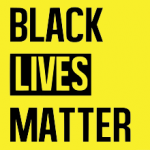By Jason Coker

Four hundred years ago next year, the first African was brought to North America as a slave. The name given to her was Angela. I know this because of the incredible people that have created the Angela Project. Since I have become aware of this group of prophets, preachers, and moral agents, I have thought a lot about Angela. I don’t know much about her besides her name and her place of origin—but only the continent of Africa, so no real specificity. Angela. I think about what it was like for her to be taken away from her family by strangers. I wonder what was going through her mind when people of another culture and language bound her and marched her to a ship and exported her as a commodity across the Atlantic Ocean never to see or know her family or home again. In whatever language the spoke and whatever cultural concepts she understood, I’m certain she knew what was happening to her was evil. I am certain that her family knew it was evil, too. I don’t really know how her captors and exporters didn’t also know this. Is economy so powerful that it can justify enslaving another person? Our history says so! Angela knew it was evil from the very beginning.
Her 14 million African sisters and brothers who were also captured and marched to ships and exported as commodities also knew this was evil. Fourteen million African families destroyed. Her 12 million African sisters and brothers who survived the Transatlantic journey to despair realized in their own bodies and lives the truth of this evil when they landed in North America and were sold on auction blocks like cattle and horses and mules. All of these 12 million survivors knew slavery was evil. How could it have taken so long for white merchants, landowners, and businessmen to recognize this evil, too?
For 245 years, these 12 million African sisters and brothers languished in slavery and had families of their own who were born in the former British colonies of North America, and later, the United States of America. These families of slaves were ripped to pieces by the slave economy. Wives and husbands split apart because one was sold without the other. Children sold from their parents and parents from their children. All of these families, shredded by the institution of slavery, knew that slavery was evil—just like Angela.
It took the Civil War to end slavery in the Unites States of America. After 245 years of institutional slavery, there were finally enough white people in the United States to agree with the 14 million African sisters and brothers who were exported here and their descendants to finally end the scourge that is one of the United States’ original sins—the other, of course, being the genocide of the local, native inhabitants. Finally, there were enough white people to see slavery as evil and fight for its abolition in the United States of America. This was 153 years ago.
While the end of slavery was a victory for humanity in the United States, it was not the death of the ideology that supported and promoted slavery. The ideology of white superiority did not die on the fields of Gettysburg or on the bluffs of Vicksburg. Many of those whites who fought and died to end slavery still understood themselves as superior to the slaves they were liberating. Because of this deep racial ideology, African Americans were relegated to second-class citizens who did not have the same rights as their white sisters and brothers in the US. Jim Crow supported this strict separation in Southern states and institutionalized racial bigotry into law. The descendants of those 12 million African sisters and brothers who made it across the Atlantic knew this was evil—a continued assault on humanity. This is the heritage of the Southern white—a heritage that so many are proud of. So proud, in fact, that they want to keep vestiges of this history in flags and statutes. Flags and statues that still symbolize crimes against humanity—evil.
Only 53 years ago did African Americans gain equal status as human beings in the United States of America. The Civil Rights Act of 1964 made it illegal in the United States to discriminate based on race. Voter registration was open, schools were forced to integrate, employers could not discriminate based on race, color, sex, or nationality, and public services (water fountains, etc.) were open for everyone. This landmark case moved the United States closer to its ideals of all people being created equal. And while it was a major move in the right direction, it did not destroy the ideology that promoted racial segregation—white superiority. In fact, the growth of the private school system in Southern states simply created an alternative system for white people of means to keep their children separated from African Americans. Dr. King, Mr. Evers, Mrs. Hamer, and all those who followed them through this movement knew that Jim Crow and segregation and racial discrimination were evil. Why did it take so long for enough white people to agree with them to the point where the laws of the land were finally changed?
The events in Charlottesville, Va., this past week were horrendous, and the outpouring of resistant voices has been important. It is good to hear from white people that many of them condemn the ideology of white supremacy and white nationalists and other evil hate groups and the thought that gives them a foundation. It is good to see how many white people have taken to digital media to condemn the actions of these misguided children of God, and declared that silence is compliance. I agree. But voice is not enough. I don’t want to try and speak on behalf of all African Americans—that would be very white of me. I’ll speak on behalf of myself. I’m so tired of white people just talking as if voicing condemnation on the KKK, Neo-Nazis, and other white supremacists is some radical morality. That’s not radical; that’s just what we are supposed to do as decent human beings. Don’t just talk. Listen. Listen to Angela. Listen to our African American neighbors and friends. Listen to those who were not shocked by the events of Charlottesville because they’ve been paying attention for a long time. I sincerely hope this gives all of us the opportunity to listen to each other, learn from each other, become friends with each other, and do something important together. The good people that have created the Angela Project are doing this! They were doing this before Charlottesville, and they will continue their good work toward racial justice, racial healing, and hopefully, racial equity. Lord, have mercy.
Jason Coker serves as the field coordinator for CBF of Mississippi and leader of Together for Hope, CBF’s rural poverty coalition.
Note: The views expressed here in columns and commentaries are solely those of the authors.
Interested in writing for CBF at Patheos? Submit your column idea to CBF Communications Director Aaron Weaver at [email protected].










